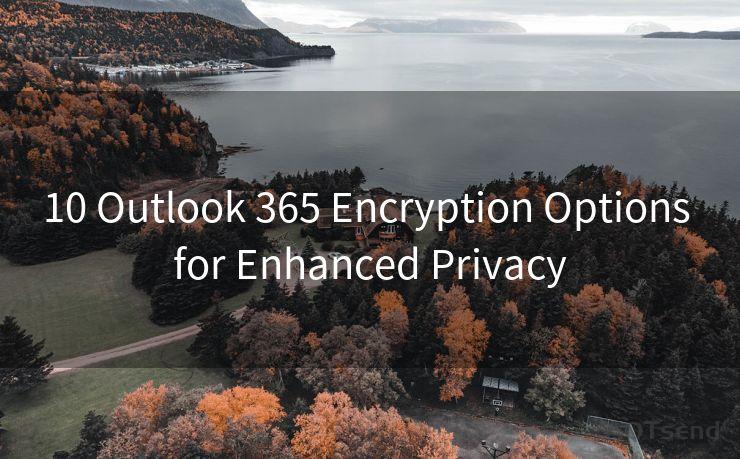10 Outlook 365 Encryption Options for Enhanced Privacy




In today's digital age, privacy and security are paramount, especially when it comes to email communications. Outlook 365, as a popular email service, offers various encryption options to enhance user privacy. In this article, we'll explore the top 10 Outlook 365 encryption options that you can utilize for improved privacy protection.
1. Transport Layer Security (TLS)
TLS is a protocol that ensures privacy and data integrity between two communicating applications. Outlook 365 supports TLS encryption, which means that your emails are securely transmitted between servers. This is a fundamental encryption method that protects your data in transit.
2. Secure/Multipurpose Internet Mail Extensions (S/MIME)
S/MIME provides end-to-end encryption and digital signatures for email messages. It ensures that only the intended recipient can read the message and verifies the sender's identity. Outlook 365 allows users to configure S/MIME for added security.
3. BitLocker Encryption
While not directly related to email encryption, BitLocker is a full-disk encryption feature available on Windows systems. If you store Outlook 365 data locally, enabling BitLocker adds another layer of protection by encrypting the entire drive where your email data is stored.
4. Azure Rights Management Services (RMS)
Azure RMS integrates with Outlook 365 to provide persistent protection for your emails. It allows you to control who can access, forward, print, or copy sensitive information within an email, even after it's been sent.
5. Office 365 Message Encryption (OME)
OME is a service that allows you to send encrypted emails to anyone, regardless of the email system they use. It ensures that only the intended recipient can read the encrypted message.
6. Two-Factor Authentication (2FA)
Although not directly an encryption method, enabling 2FA for your Outlook 365 account adds an extra layer of security. It requires an additional verification step, such as a code sent to your phone, to access your account.
7. Advanced Encryption Standard (AES)
AES is a widely used symmetric encryption algorithm. Outlook 365 may utilize AES encryption when sending and receiving emails, depending on the configuration and the capabilities of the receiving server.
🔔🔔🔔
【AOTsend Email API】:AOTsend is a Managed Email Service for sending transactional emails. Support Email Types: reminders, authentication, confirmations, notifications, verification codes, invoices, password resets, account activations, billing statements, two-factor authentication (2FA), and one-time passwords (OTP) emails, etc. $0.28 per 1000 Emails. 99% Delivery, 98% Inbox Rate.
You might be interested in:
Why did we start the AOTsend project, Brand Story?
What is a Managed Email API, How it Works?
Best 25+ Email Marketing Platforms (Authority,Keywords&Traffic Comparison)
Best 24+ Email Marketing Service (Price, Pros&Cons Comparison)
Email APIs vs SMTP: How they Works, Any Difference?
8. Encrypted Attachments
When sending sensitive documents as attachments, you can choose to encrypt them separately using tools like Microsoft's built-in encryption or third-party software. This ensures that even if the email is intercepted, the attachments remain secure.
9. End-to-End Encryption Plugins
There are various plugins and third-party tools that offer end-to-end encryption for Outlook 365. These plugins can provide an additional level of security by encrypting emails from the sender's Outlook client to the recipient's client.
10. Regular Updates and Patches
Keeping your Outlook 365 and associated software up to date is crucial for maintaining security. Microsoft regularly releases updates and patches to address vulnerabilities, which indirectly supports encryption and privacy efforts.
In conclusion, Outlook 365 offers a variety of encryption options to enhance user privacy. From TLS and S/MIME to more advanced features like Azure RMS and OME, these tools provide comprehensive protection for your email communications. By utilizing these encryption methods, you can ensure that your sensitive information remains secure in today's digital landscape.





Scan the QR code to access on your mobile device.
Copyright notice: This article is published by AotSend. Reproduction requires attribution.
Article Link:https://www.mailwot.com/p723.html



